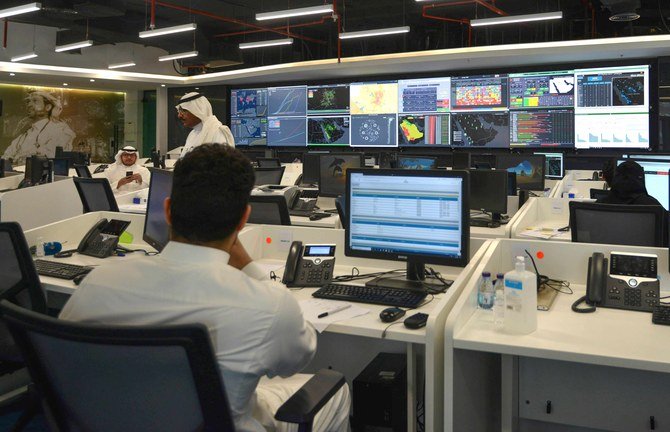
- ARAB NEWS
- 18 Jul 2025

Mohammed Al-Jadaan, Saudi Arabia’s finance minister, has revealed the full scale of the challenges that face the Kingdom from the economic shock of the coronavirus disease (COVID-19) pandemic.
His interview on Saturday evening spoke of the need to take “strict, painful” measures to counter the economic downturn caused by the pandemic, and the minister made clear that everything — including the timing of some of the high-profile projects under the Vision 2030 diversification strategy — was under consideration in a bid to get costs under control in an unprecedented situation.
“The list is extremely long,” he said of potential cost-cutting opportunities. The economies of the rest of the world also face the same challenge, of course, but what makes the crisis all the more acute for Saudi Arabia is that it coincides with a simultaneous shock to oil revenues as a result of falling global demand. The double whammy of declining economic activity and falling oil revenue make drastic and speedy action inevitable for the Kingdom, Al-Jadaan indicated.
Stock markets do not like surprises, especially unpleasant ones, and the Tadawul index shed more than 7 percent in trading immediately after the interview as published.
Saudi Aramco, the Riyadh exchange bellwether, lost more than 5 percent. What disturbed the markets was the distinct change in tone from the minister’s recent statements on the Kingdom’s finances. Just 10 days ago, in a preview of the first quarter budget release, he said that, while Saudi Arabia would have to tighten its belt, dip into reserves, and borrow on the international capital markets, the country had the resources and the resilience to withstand the pandemic as it had weathered other serous crises.
The whole world is now facing a period of economic downturn similar to the 1930s Great Depression. At least Saudi Arabia has the economic and financial resources to weather the initial shock, and — with sound and visionary strategy — to come out the other side of austerity.
Frank Kane
In the budget itself, the minister laid out a carefully considered plan to cover the inevitable financial deficit for 2020 and revealed that is still had $646 billion in reserves to help it do so. The new change of tone and emphasis was remarkable. Now, all options are open, beyond the “basic necessities of the people,” he said. “The list is extremely long,” he said of potential cost-cutting opportunities. It is important to stress that the Kingdom goes into this period of unparalleled economic uncertainty with some distinct advantages. Its levels of debt are low by international standards, and it has the ability to raise more funding in international capital markets, as the success of the recent $7 billion bond, oversubscribed several times, has shown.
It also has the deep capital reserves held by the Saudi Arabian Monetary Authority, the Public Investment Fund and other state agencies which could be called upon to balance the books in an emergency such as the one we are experiencing. No other member of the G20 group of leading economies has such firepower in reserve as they try to combat the economic hurricane caused by the pandemic.
Moreover, Saudi financial institutions have strong balance sheets, which have been further bolstered by early government measures to protect the banking system via injections of extra cash. The non-oil sector of the economy, especially small to medium businesses, will look to the banks to come good on government pledges of support.
Once the initial shock to pubic finances is contained by the emergency measures outlined by Al-Jadaan, policymakers will turn their attention to the stimulus packages needed to get the economy up and running again.
The International Monetary Fund (IMF) said recently that while it expected the Saudi economy to contract by 2.3 percent this year, it expected a sharp rebound next year to 2.9 percent growth. By this time, demand for revenue-generating energy products should also have recovered to some degree, giving the oil price a much needed boost.
The IMF also said that the COVID-19 crisis could bring on a global level of economic hardship similar to that of the 1930s Great Depression. What principally got the world out of that trough was increased government spending under the New Deal of US President Franklin Delano Roosevelt. The whole world is now facing a period of economic downturn similar to that era. At least Saudi Arabia has the economic and financial resources to weather the initial shock, and — with sound and visionary strategy — to come out the other side of austerity.
• Frank Kane is an award-winning business journalist based in Dubai.